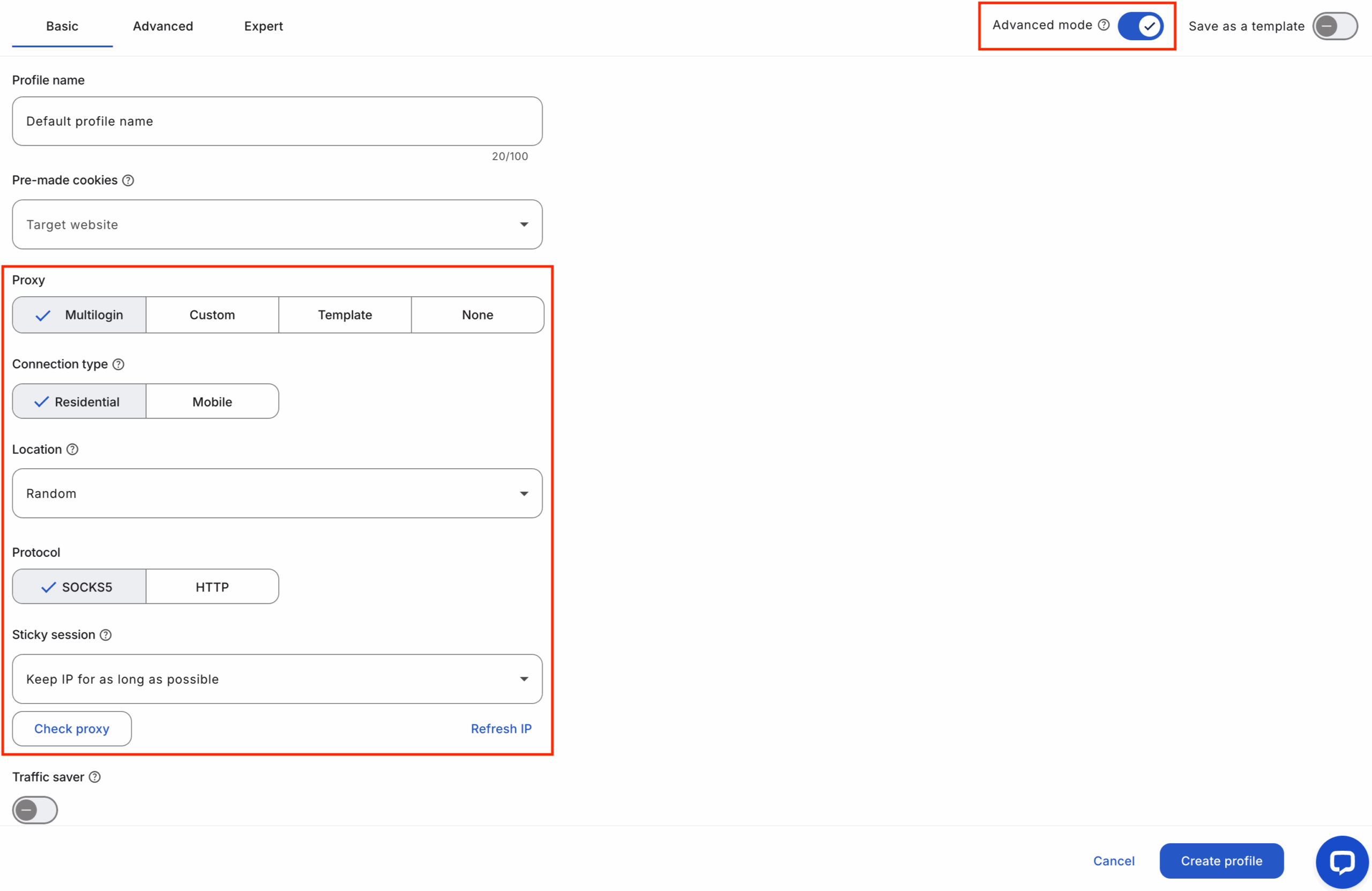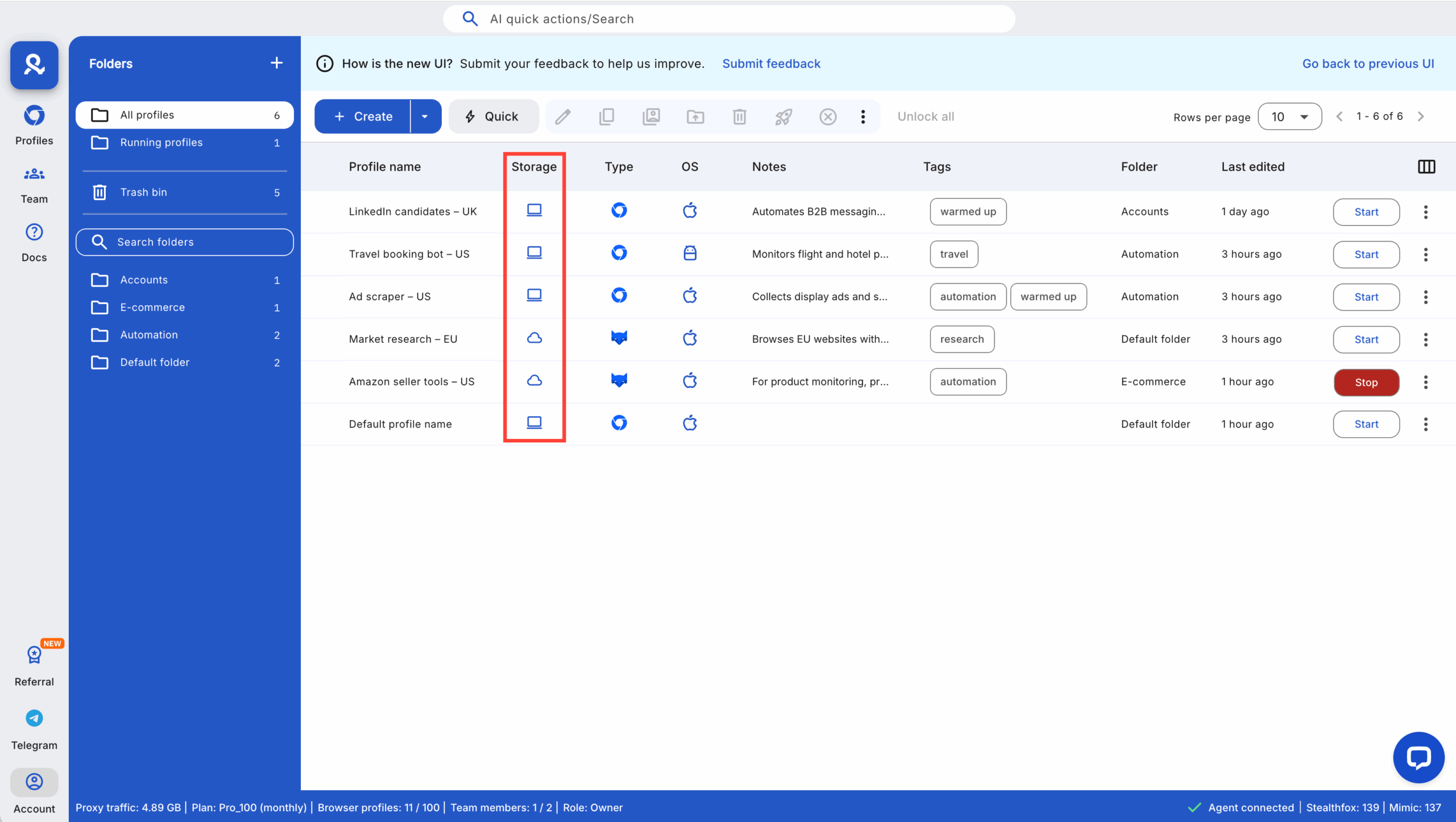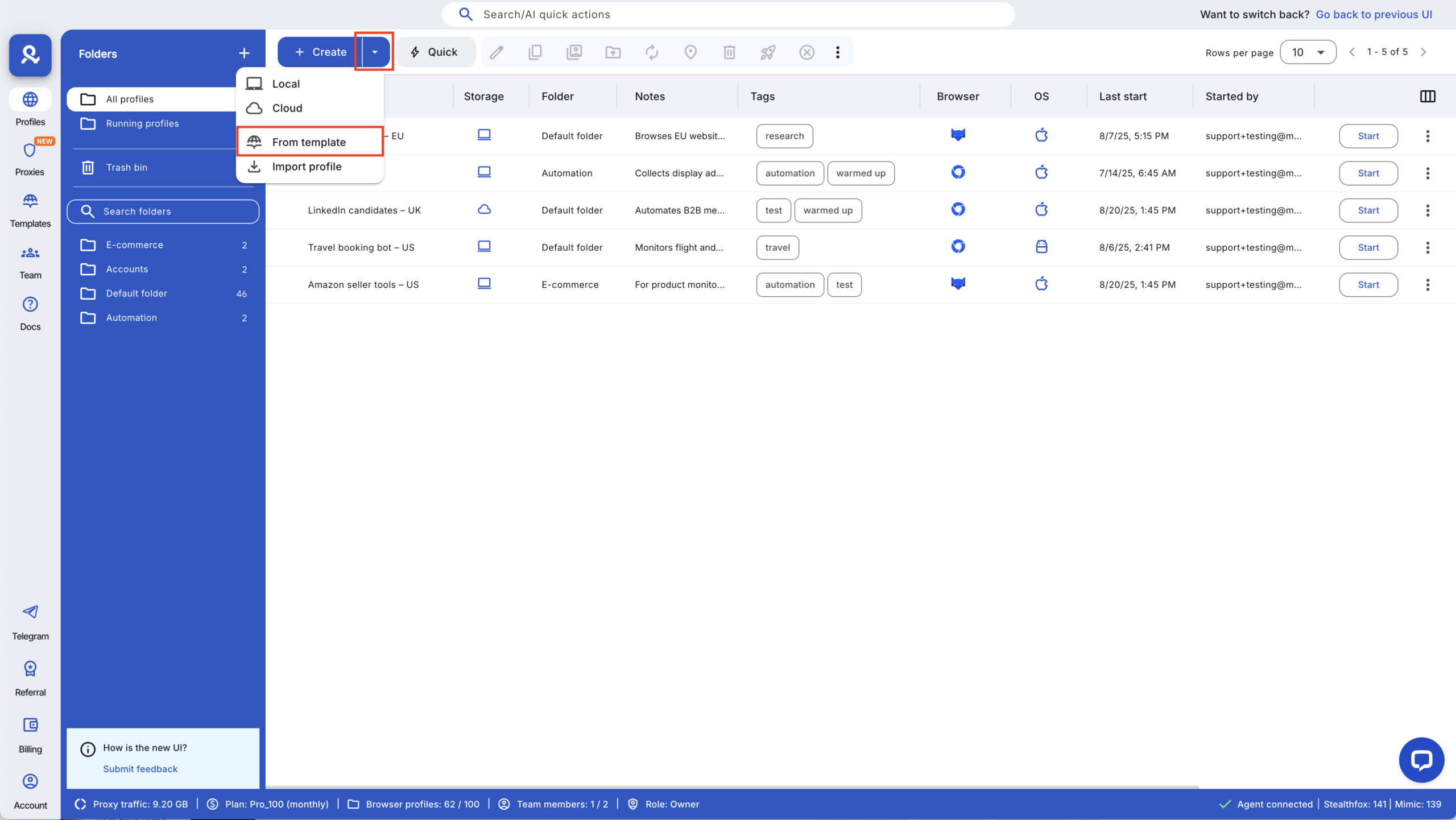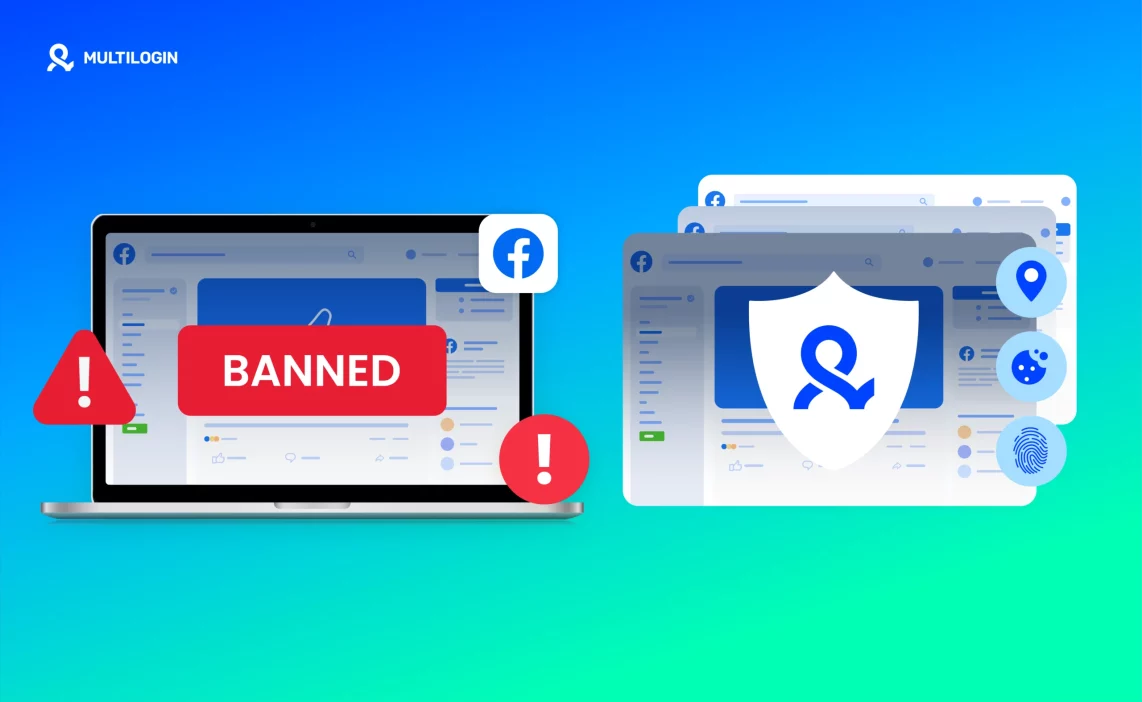One day you’re running ads or posting to friends, the next your Facebook account is banned — sometimes for a few days, sometimes forever. Pages, messages, and campaigns can all disappear in an instant.
Most bans aren’t random. Facebook flags patterns that look risky: unusual logins, repeated activity, or accounts that seem linked together. If you know these triggers, you can avoid them.
TL;DR: This guide explains why Facebook accounts get banned, how to recover if it happens, and the exact steps you can take to prevent future bans (including how to keep multiple accounts separate with Multilogin).
In this article you’ll learn:
The main triggers that cause Facebook bans
The types of bans and how to respond to each one
Prevention steps using profile isolation, proxies, and cookie management
Why Facebook bans accounts
Facebook doesn’t ban accounts for no reason — it bans activity that looks unnatural or connected. Below are the top triggers, each explained simply, followed by the Multilogin remedy and immediate action steps.
1. Logging in from different devices or IPs too often
If you log in from many cities, devices, or random IPs, Facebook suspects account takeover — it flags the account and may ban it.
How Multilogin fixes it
Assign a dedicated residential proxy per profile so each account always logs in from one consistent location/IP. Pair that with a unique fingerprint so the account appears to come from a single, normal user.
Do this now (1–3 steps):
Open the profile → Proxy settings.
Select Residential proxy and pick the recommended geo (e.g., US → New York).
Save and always use that profile for that account.

2. Adding friends, posting links, or joining groups too fast
Rapid, repetitive actions look like spam or bot behaviour. Facebook throttles or bans accounts that act too quickly or too uniformly.
How Multilogin fixes it
Use isolated profiles and automation jitter: run each account in its own profile, and, if you automate, randomize timings and sequences per profile so behaviour differs across accounts.
Do this now (1–3 steps):
Put each account in its own profile (one profile = one account).
If automating, connect to Multilogin’s local API and add randomized delays (
waitjitter).Test in one profile first, then roll out.

3. Using a fake name or posting content that breaks rules
Fake identity or posts that violate policy lead to immediate and often permanent bans.
How Multilogin fixes it
Multilogin doesn’t change policy risk — it prevents unrelated accounts from being linked. Use Multilogin with legitimate account details and keep each profile’s activity consistent with the claimed identity/region.
Do this now (1–3 steps):
Use accurate, verifiable account details per profile.
Match fingerprint locale and proxy geo to the account’s country.
Keep posting behaviour consistent and human-like.

4. Running many accounts without keeping them separate
Managing multiple accounts from the same browser leaks cookies, autofill, and fingerprints — Facebook links them and can ban them together.
How Multilogin fixes it
Profiles are fully isolated: separate cookies, cache, localStorage, and autofill per profile. That prevents cross-account leaks and stops Facebook from connecting accounts.
Do this now (1–3 steps):
Create one profile per account.
Label profiles clearly (ClientName_Country).
Never log into another account inside that profile.

5. Bots and cheap automation tools leave detectable patterns
Simple scripts or identical automation across accounts create repeatable patterns Facebook spots easily (same clicks, same timings).
How Multilogin fixes it
Multilogin integrates with Puppeteer, Playwright, Selenium and exposes API hooks so you can run per-profile automation with randomized behaviour and isolated environments.
Do this now (1–3 steps):
Connect your automation tool to Multilogin’s local API.
Add random delays and vary action order per profile.
Monitor logs and adjust behaviour per account.
Start your Multilogin trial today for just €1.99 Keep your Facebook accounts separate and lower the risk of bans from day one.
Types of Facebook bans
Not every Facebook ban is the same. Knowing the type helps you decide what to do next.
- Temporary restrictions – Short blocks that stop you from posting, commenting, or sending requests. These often last from a few hours to a few days.
- Feature bans – Specific tools like ads, groups, or messaging are disabled. Common for business accounts that post too aggressively.
- Permanent account bans – Full access is removed and the profile is locked. Appeals rarely work here.
- Business Manager bans – Ad accounts or Pages tied to Business Manager get suspended. This can affect campaigns, budgets, and entire teams at once.
For businesses, feature bans and Business Manager suspensions are the most damaging. They cut off reach and ad spend overnight, which is why prevention matters more than recovery.
How to fix a banned Facebook account
The first step is knowing what type of ban you’re dealing with. Facebook always shows a message when an account is blocked — read it carefully.
- Check the ban type – See if it’s a temporary block, a feature restriction, or a full ban.
- Submit an appeal – Use the Request Review button if Facebook offers it.
- Verify identity – Be ready to upload an ID or confirm account details.
- Clean linked activity – Remove unknown apps, logins from strange locations, or accounts tied to the same browser.
- For business accounts – Contact Meta Business Support. They handle ad account and Business Manager bans directly.
If you’re running multiple accounts for business, prevention is easier than recovery. Tools like Multilogin help keep accounts separate with unique fingerprints, cookies, and IPs — so one ban doesn’t wipe out everything at once.
Why Multilogin helps with Facebook bans
If you run more than one Facebook account, you already know the risk. One mistake and all of them can get banned at once. Proxies or VPNs alone won’t save you — Facebook looks deeper than IP addresses. It checks browser fingerprints, cookies, and session history. That’s where Multilogin makes the difference.
With Multilogin, each account runs in its own isolated browser profile. To Facebook, every profile looks like it belongs to a different real person. That means no leaks between accounts, no shared cookies, and no device overlap.
Here’s why businesses and agencies rely on it:
- Real isolation – Profiles don’t just open in tabs. They behave like separate devices with their own logins, storage, and browsing history.
- Built-in residential proxies – Every plan includes proxy traffic, so you don’t have to patch together tools from different providers.
- Fingerprint control – Adjust details like canvas, WebGL, fonts, and timezone so your profiles pass as natural users.
- Pre-made cookies and sessions – Keep accounts logged in, return exactly where you left off, and build account history that looks authentic.
- Scalable setup – Whether you run five accounts or five hundred, Multilogin gives you the structure to grow without bans.
For businesses, losing accounts means losing reach, campaigns, and revenue overnight. Multilogin prevents that. It gives you the control to keep accounts alive long-term, instead of constantly creating new ones after bans.
Try Multilogin today for only €1.99. Keep your accounts running smoothly!
Final Thoughts
Facebook bans are not random. They happen when accounts look suspicious, break rules, or get linked together. For personal users, that can mean losing contact with friends. For businesses, it can mean losing pages, ads, and revenue overnight. Fixing a ban is possible, but prevention is always better. By keeping accounts separate and undetectable with a tool like Multilogin, you lower the risk and protect the work you’ve built.
Start your Multilogin trial for €1.99 and manage multiple accounts without bans.
Frequently Asked Questions About Facebook Banned Accounts
Bans always come from patterns Facebook doesn’t trust, even if you didn’t break a rule. It could be unusual logins, too many friend requests, or account linking. Multilogin helps avoid this by isolating each profile with its own fingerprint, cookies, and IP.
Permanent bans are rarely lifted. You can appeal, but success rates are low. For businesses, the best strategy is prevention — using Multilogin to keep accounts safe from being linked and flagged.
Temporary bans can last hours to weeks, depending on the reason. Feature bans (ads, groups, Messenger) may last longer. With Multilogin, you reduce the triggers that cause these bans in the first place.
Yes, but only if they’re kept separate. Using normal browsers or only proxies links them together. Multilogin creates isolated profiles that act like real devices, so accounts can be managed without detection.
Businesses face bans when running many accounts or scaling ad activity too fast. Multilogin gives them account isolation, built-in residential proxies, and fingerprint control so they can run campaigns without losing everything to one ban.



